Do you think that Macbeth is a victim of his own ambition? Or do you think there are other factors contributing to his downfall? Elaborate.
Macbeth is a victim of his own ambition in close reading upon examination of the following verses, herein Macbeth declares, “Sleep no more! Macbeth Glamis hath murdered sleep and therefore Cawdor shall sleep no more, and, Macbeth does murder sleep, the innocent sleep, “Will all great Neptune’s Ocean wash this Blood clean from my hand, This my hand will rather the multitudinous seas incarnadine, Making the green one red.” Macbeth is a character filled with pity rather than a character of despicable detestations in readers judgment. His peripeteia from exalted nobility’s glory to decadence of degenerative inhumanity contributes to his downfall. Macbeth as a poignant character is transformed into a punitive protagonist in the readers’ and spectators’ deriving satisfaction through revenge or retributive justice.
Bravehearted, valiant and worthy gentleman, Duncan endears epithets of his noble entitlement which ironically obscures into oblivion aftermath of ignominious treachery of murdering Duncan in sleep as his invited guest of honour. Notwithstanding Macbeth’s vacillation and procrastination before the assassination is thus the best evidence we have of vindictiveness in the vein of cathartic plight of the dilemmatic soul. Macbeth is tormented before the prospects of his own crime in declaiming to have chosen kingship over the murder. “Will plead like angels, trumpet tongued, against The deep damnation of his taking-off.” “We shall proceed no further in this business” to “I am settled….this terrible feat” surmounts the trajectory of procrastination to resolution and therefore, parallel the progression from great goodness to great wickedness.
Macbeth’s murdering of Banquo and Lady Macduff along with the inheritor prince grimaces striking horror and terror which vividly portrays crime at its pinnacle. Absence from her husband, the loving banter of her son and her stand against the murderers makes her as admirable as the little boy himself, who dies in defense of his father’s name. Then maneuvering to England to witness the atrocity on Macduff, our active pity for Macbeth’s victims is at the high point of the play. These terrible feats are remote and impersonal to Macbeth as they are personal and immediate to the audience. These crimes were followed by suffering scenes of self-torment and thus, the bloody execution of regicide in civilian life and past military life , he does not understand his own character-he does not know what will be the effects of the evil act on his future happiness. Macbeth is a brave warrior, a moral coward and a brutal murderer who is racked by feelings of guilt.
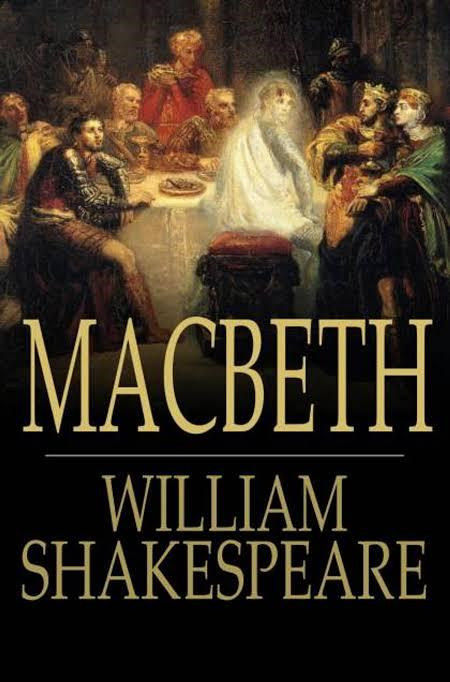
Write a brief note examining the significance of witches in Shakespeare’s Macbeth.
Witches’ materialistic and cannibalistic ritual of womb-like cauldron’s mouth and flinging of poisonous and ravenous beasts (toads, snakes, dragons, wolves, sharks and tigers) and parts representing the erotic and sensory powers of non-Christian (Jew’s liver, Turk’s nose, Tartar’s lips) -and those lowers senses of smell and taste involved in feeding. Witches in Macbeth are loathsome and malevolent and their magical powers causes tempests that afflict voyagers, and they are associated with murderous treachery, tyrannical butchery, slaughtering violence and unnatural disturbances of many kinds. These are wayward weird sisters, Goddess of destiny or some fairy nymphs in otherworldly and wild apparels. The witches are grossly unnatural in their appearance, being female but bearded; they relish blasphemy, infanticide and filth; and they inflict storms and disruptions. Witches walk of the hurly burly of the battle and their distorted gender creating a murky atmosphere of blurred distinctions and mingled opposites wherein the masculinity arches and contends over femininity of moral ambivalence and of chaos: ‘fair is foul and foul is fair’ , and ‘things hover through the fog and filthy air’. The witches cauldron, this hell-broth betokening of chaos and destruction, is an antithesis of the fertile womb producing poison and death instead of health and new life.
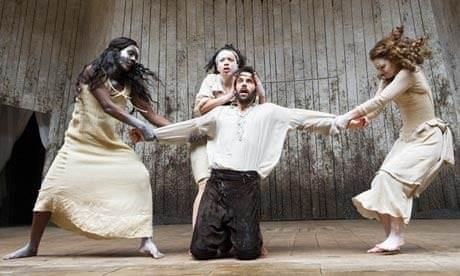
Further Reading and Works Consulted
Macbeth As A Tragic Hero Wayne C. Booth, Source: The Journal of General Education, October 1951, Vol. 6, No. 1 , October 1951, pages: 17-25 Penn State University
Macbeth’s Three Murders Robert Lanier Reid pages: 117-130 Harold Bloom’s Shakespeare’s Literary Criticism
Wordsworth Classics Edition Cedric Watts Introductory Note of Willaim Shakespeare’s Macbeth
Macbeth Piotr Shadowski pages: 151- 161 Harold Bloom’s Shakespeare’s Macbeth Modern Literary Criticism
Examine the opening scene of Shakespearean tragedy Macbeth.
Act I celebrates Macbeth as a military leader, but the subtler dramatic value is in his struggle to deal with temptations that high public honours will place on his integrity and personal honour. His soliloquies show him struggling with something strangely unfamiliar. Hudibrastic language and burlesque meter of the superstition and magical fantasy characters-the genderless witches are introduced within the opening scene of Macbeth “Fair is foul, and foul is fair, Hover through the fog and filthy air.. Their prophecy of Macbeth’s future dukedom, earldom and kingship of Cawdor and Scotland after his eventual crowning of Glamis strikes him and Banquo with the procrastination in meditative contemplation. Banquo’s and Macbeth’s soliloquy can be interpreted in the vein:
“The instruments of darkness tells us truths,
Wins us with honest trifles, to betrays,
In deepest consequence.”
Puzzlement springing forth into moral anxieties of those malicious agents of wickedness in Banquo’s presence of referencing Macbeth’s uncertain future: strangeness of the calamitous situation.
“Cannot be ill, cannot be good, if ill,
Why hath it given me earnest of success,
Commencing in a truth?
Unraveling mysteries inclines to antithesis, Macbeth soliloquises the certainties of psychological truth between horrible imaginings. Duncan’s humanizing kingship with his subject, “The Prince of Cumberland ” endowment to establish his political hegemony can be critiqued to a detailed entrenchment.
“Stars, hide your fires,
Let that light never see my black and deep desires,
The eye winks at the hand. Yet let that be,
Which the eye fears when it is done to see.”
Goodness itself is too frail to challenger the world of darkness and the horror Lady Macbeth is invoking, “Come you spirits…Come to my woman’s breast…Come, thick night!”
“The raven himself is hoarse,
That croaks the entrance of Duncan
Under my battlements.” and further “Great Glamis, worthy Cawdor, Greater than the both by the all -hail hereafter.
Banquo’s continuance of ominous foretellings inferring natural imageries of martlet and birds to Jacobites engenders deceits and hypocrisy, “Where they most breed and haunt, I have observed the air most delicate. False face must hide, what the false heart doth know.”
Dr Samuel Johnson’s shrewd observance of Shakespare’s Macbeth reads: “This play is deservedly celebrated for the propriety of its fictions, and its solemnity, grandeur, and variety of its actions; but it has no nice discriminations of character, the events are too great to admit the influence of particular dispositions, and the course of the action necessarily determines the conduct of the agents.” Having evoked the play’s distinctive atmosphere Bradley exclaims, “From this murky background stands out the two very great terrible figures, who dwarf all the remaining characters of the drama. Both are sublime, and both inspire, fare more than the other tragic heroes, the feelings of awe.” Bradley felt that Shakespeare wrote Macbeth after great pain, tumult and loss and the play’s ending give a sense that the order has been restored.
Terry Eagleton’s observation of the weird sisters of sorcerers and witchcraft in the language: They are poets, prophetesses and devotees of the female cult, radical separatists who scorn male power and lay bare the sound and fury at its core.
Cambridge Student Guide Shakespare Macbeth Stephen Sidall
“Will all great Neptune’s ocean wash this blood
……………………………………….
Making the green one red.”
These are magnificent poetic lines extracted from Macbeth Act II Scene II Lines: 59-62 immediately after the horror striking and terror thundering slaughter of Duncan by Macbeth. The regicide grimaces grimy staining of Macbeth as a traitorous villain and disloyal minister to the government of the monarchy. Macbeth’s character assassination cannot be salvaged by the multitudinous seas taken together with reference to its innumerable waves and the countless masses of water on the surface of the globe(Malone). “The long latinised verbs preceded and followed by monosyllables gives the effect of a boundless sea.” (Wilson) And “the imagination of Macbeth dwells upon the universal conversion of the red one into green. (Elwin). The hyperbole of hysteria culminating in the pinnacle of the drama reflects Macbeth’s aghast and agonized soul at its moral defeat-a hallucination of greater emotional power than that of the dagger.

Here’s Macbeth’s soliloquy in full:
She should have died hereafter;
There would have been a time for such a word.
Tomorrow, and tomorrow, and tomorrow,
Creeps in this petty pace from day to day
To the last syllable of recorded time,
And all our yesterdays have lighted fools
The way to dusty death. Out, out, brief candle!
Life’s but a walking shadow, a poor player
That struts and frets his hour upon the stage
And then is heard no more. It is a tale
Told by an idiot, full of sound and fury,
Signifying nothing.
Analyze Macbeth’s soliloquies in relation tot he development of his character in the course of the play. [Calcutta University Honours. 1989]
Macbeth’s soliloquies manifests the interior dramatic monologue revealing thoughts, feelings, emotions and sentiments surrounding the happenings on stage and off stage by the subsequent pursuit of consecutive murders. His poetic lyrics embellish the subconscious state of mind and soliloquies are the best means of presenting the essential self of the character which is disintegrated and disrupted by the temptation.
The conflict of Macbeth’s mind between the impulse to action and conscience. His mind is working on two planes as he is getting his reasons and motives hopelessly wrong. Wilson Knight notes of Macbeth’s interior dilemma as soon as he proceeds to murder Duncan, “Macbeth whose conscience revolts from the crime persuades himself that he is a most cold-blooded villain and fears of the actual and personal punishment.”
Macbeth contemplates the immediacy of the action and procrastinates the approach stepping to resolution and the implications of a future life. Justice is impartial and our crimes recoil upon us. Duncan is Macbeth’s blood relation and monarchical courtier which are the strong reasons against his contemplated regicide. His bindings to the sacred pledge of hospitality succumbs by the temptation to gain power by affording to bear the dagger himself.
Duncan whose acclaimed nobility and renowned eminence can be appertained to his exercise of power with modesty and meekness. “Will plead like angels, trumpet tongued , Against the deep damnation of thy soul” Overambition vaults unsurpassingly and overreaches itself just as a reckless rider may overleap and miss the saddle. Macbeth is afraid of his vaulted ambition and the soliloquy reveals “a mind trying to get its own motives clear”. Macbeth cannot pronounce murder which sticks in his throat and Macbeth fears eternal the intended crime, knowing that Duncan would be pitied as a ‘newborn babe’ and Duncan’s virtues are like angels who will proclaim the horrid deed and will be condemned through the sightless couriers of the air.

Helen Gardner in a fine analysis of the last art of the soliloquy remarks: “It is not terror of heaven’s vengeance which makes him pause; but the terror of moral isolation. The babe image merges into the cherubim, not because Shakespeare means Macbeth to be feeling both pity and fear of retribution at the same time but because Shakespeare believes in the holiness of the heart’s affections. It is the judgment of the human heart that Macbeth fears here, and the punishment which the speech foreshadows is not that he will be cut down by Macduff, but having murdered his own humanity, he will enter into a world of appalling loneliness, of meaningless activity, unloved himself and unable to love.”
“Beware of Macduff Beware the Thane of Fife”. Bring out the effect of this warning on Macbeth’s character and conduct in the last two acts of the play. [Calcutta University Honours 1994]
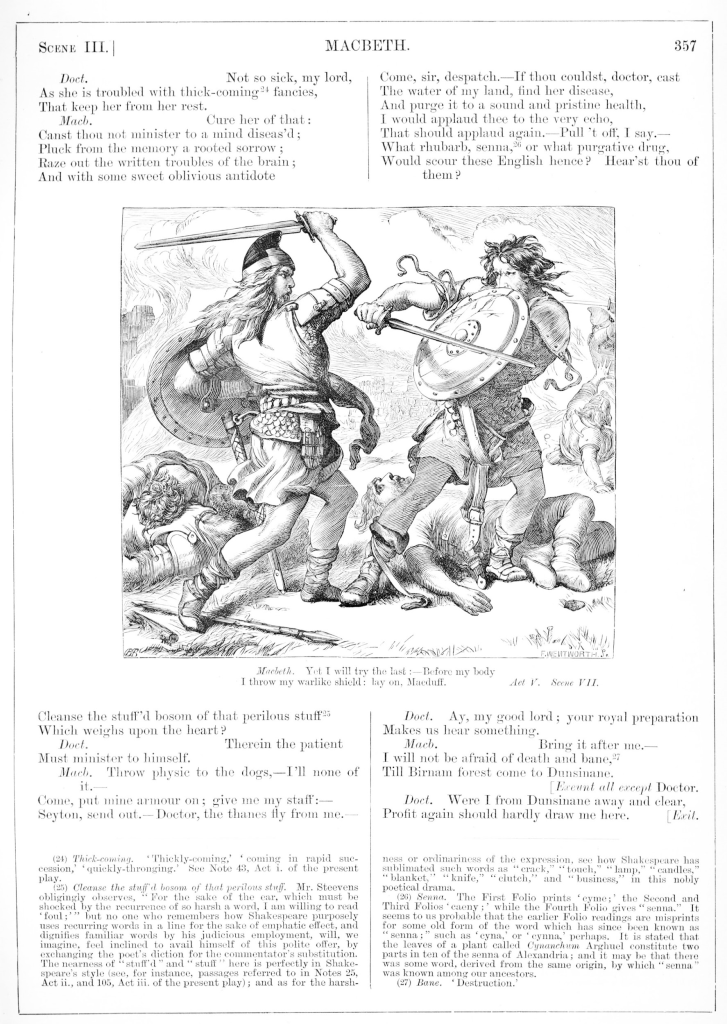
Macbeth’s desperate and belligerent actions of slaughtering England fled Macduff’s family including mistress and children demonstrate his inhumane character flawed by the frailties of temptation to the throne’s accession. Superstitious witches proclaim Macbeth’s fatal plight endangered by the prophecy, “Beware of Macduff….Thane of Fife”. “Each new morn new widows howl, new orphans cry, new sorrows strike heaven on the face”
…dead butcher Macbeth’s foreboding damnation incidents as soon as the English soldiers are ready to help the Scottish nobles who have deserted Macbeth. Macbeth acknowledges his impulses with the dread, and submits to them half knowing the consequences and watches himself destroying himself in a long suicide of the soul. His heartsickness and restlessness will not submit to the mounting tempo of rebellion and retribution, he fortifies his castle against his rivals.
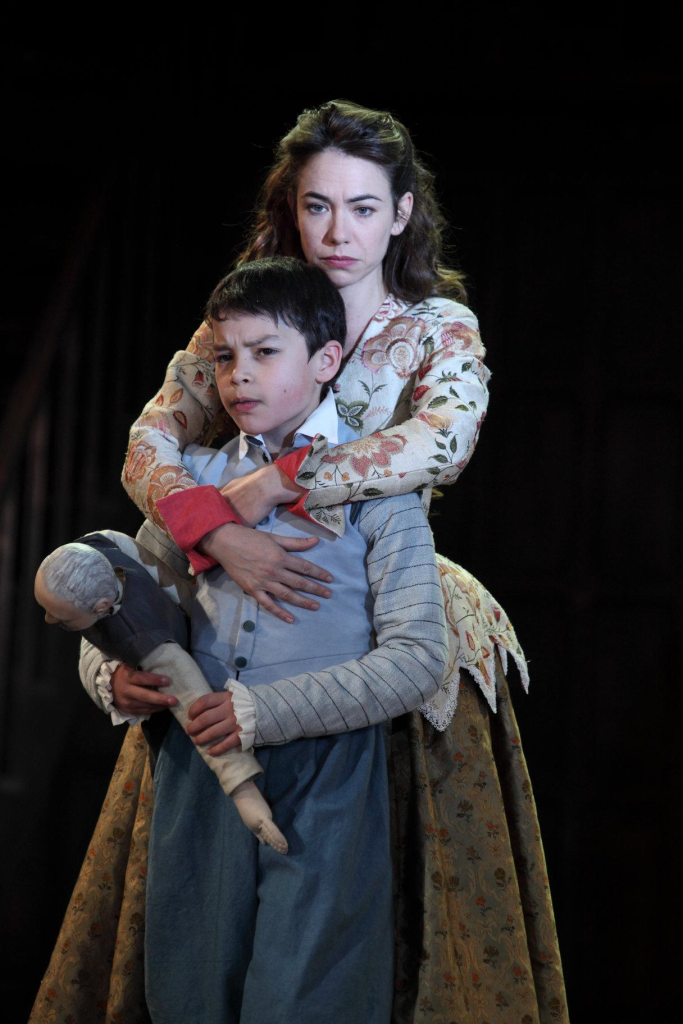
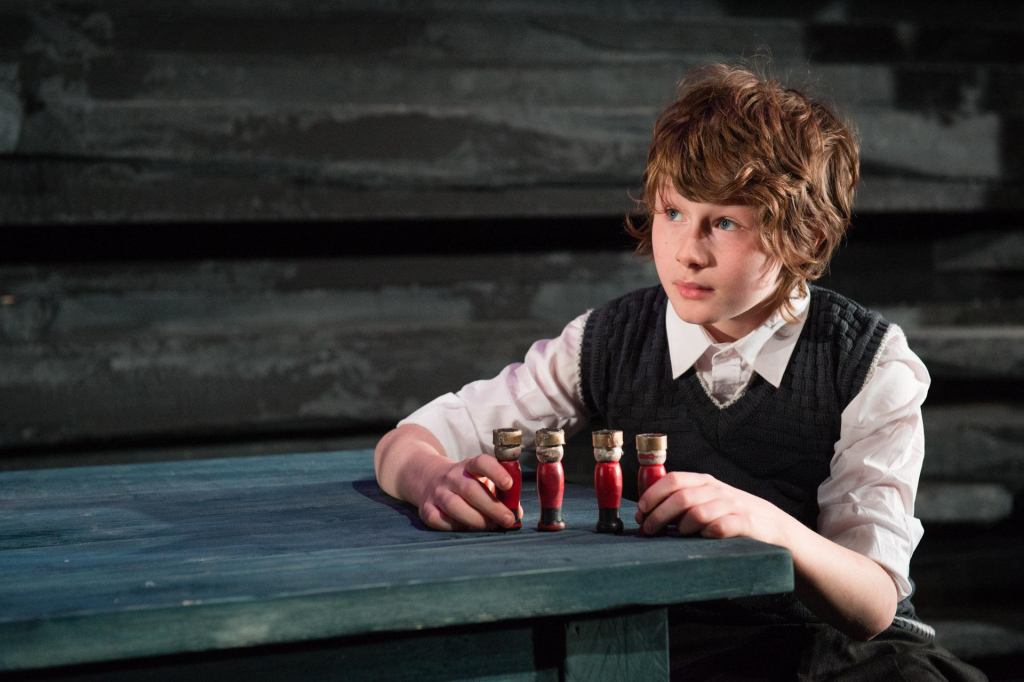
Eventually, Macbeth’s deteriorating heartsickness turns into a malicious malady of “My way of life is fallen into the sear, the yellow leaf.” Macbeth knows that Scotland is ruined, and the doctor cannot ‘purge it to a sound and pristine health’. In his desperate recklessness and the brink of despairing heartsickness-he has been led by illusions-each tomorrow comes and goes, each to-morrow becomes a yesterday befooling man and leading him to death. He has come to realize the vanity of vanities by the ‘juggling fiends’ In the course of his degeneration and downfall, the retains the spirit of grandeur and his weariness, his despair, and his sense of utter loneliness touches us pity while his defiance and fury strike us with awe.
Discuss the dramatic presentation of Macduff in the play, Macbeth.
Or
Attempt an analysis of the character of Macduff and discuss his role in the play, [Calcutta University Honours 1985]
Or
“Least our old robes sit easier than our new!” Examine the character of Macduff as the contrasting foible to Macbeth.
Or Macduff is the antihero to make the time free from tyranny and nightmare for Scotland. Explain and elaborate.
Or
“O Banquo O Banquo/Our royal masters murdered.” “O horror, horror, horror! Tongue nor heart cannot conceive or name thee.” Examine the character of Macduff in the light of this speech
Or
Macbeth is a dwarfish thief in a giant’s robe. Macduff presents the beheaded head of Macbeth to Malcolm and establishes the restoration of the divine rights of king. Examine the character sketch of Macduff.
Macduff’s noble integrity and patriotic spirit makes him an ideal foil and antagonist to lead the army against Macbeth. Macduff in the banks and shoal of banqueting discovers the grotesquery of gothic regicidal bloodshed- villainy and hypocrisy of Macbeth as reflected in the words, “Wherefore did you so?” This happens as soon as Macbeth’s murders the chamberlains and thereafter the innuendo suggests of falsely implicating Malcolm and Donalbain as the suspected perpetrators of the heinous crime since they have fled to England. Here Macduff’s stalwart pledge to the allegiance of monarchy disenchants him from the banqueting coronation of the unholy king and thereafter seeks assistance from the holy king of England (Divine Rights of King).
This Macduff fears his life because by the time Macbeth has become a tyrant Macbeth has Banquo killed and so, Macduff flees to England to arouse the rebellion in association with Malcolm beleaguring the Scottish nobles. Macduff later reveals to Macbeth that he is, “even that thy wizards have told thee of who was never born of my mother, but ripped out of the womb.”
In the meanwhile of the capturing of Dunsinane Castle, Macduff’s wife and children bravehearted lionizes themselves with audacity before the tyrant Macbeth’s interview. Lady Macduff’s feelings for Macbeth appear in her spirited reply to the murderer’s questions: “Where’s your husband?” “I hope in no place so unsanctified where such as thou may’st find him.” To the murderer’s remark that Macbeth is a traitor the lad gives an angry reply: “Thou lies, thou shag-haired villain.” The sweet and affectionate family bliss of Macduff and Lady Macduff can be contrasted with the harsh and cruel life of Macbeth and Lady Macbeth.
Macduff’s reaction to the news of the family’s slaughter throws him in sheerness grief and lamentation in poignantly brief words, “My children too?…And I must be from thence!” “My wife killed too?…”all my pretty chickens and their dam at one fell swoop.” He must be afflicted with tormented by pathetic anguish of his soul after the bereavement of his dearly family and ‘his voice is in his sword’/’Front to front/ Bring thou this fiend of Scotland and myself.”
Discuss the character of Duncan. What dramatic purpose is served by Shakespearean characterization of Duncan.
Duncan was a true legend of humanist monarch of Scotland whose conscience always worked for the welfare of the subjects. The beginning of Duncan’s reign was a peaceful sovereignty without notable chaos, but after it tumultuous turmoil caused dissenters and protestants occasion thereof to disrupt the peace and quiet state of the commonwealth.
Shakespeare makes Duncan honest and noble in order to intensify the tragic irony through the vivid impression of his angelic innocence and least life span. Jesus College Fellow and Master E. M. W Tillyard’s criticism can be justified in the estimation of Macbeth: “Shakespeare has consciously refused to allow Duncan to become an individual.” Both Macbeth and Macduff have optimistic critical reception appreciative of Duncan’s character proclaiming, “Hath borne his faculties so meek, hath been so clear in his great office, that his virtues will plead, like angels trumpet tongued…” and “Thy royal father was a sainted king.”
Duncan’s naivety and innocence makes him a double victim of both the Thane of Cawdor and Macbeth. His trustworthiness of “honoured hostess” is staked to be betrayed in case of Lady Macbeth’s devilish cloaked hospitality. Duncan’s humility, nobility, generosity and strength are to be historic charismatic qualities of justice. He wishes to reward Macbeth in proportion to his achievements and thank Lady Macbeth more than he is able to. There is a strain of sentimentality in traits since this is manifested in his exuberance and sentimentality to proclaim gratitude of the hospitality of Macbeth and Lady Macbeth. Though he sheds tears upon receiving Macbeth and Banquo yet he is firm and resolute in declaring the heir apparent Malcolm to the throne. He is contrasted with Macbeth whose tyranny will unleash the forces of disorder and disloyalty in the country.
Duncan’s spirituality and royalty is perennial presence of Macbeth’s mind, and he remembers his meekness, humility and fairness and procrastinates to dagger him but later his masculinity was provoked by Lady Macbeth to commit the most sacrilegious murder. He harps on the word hostess and kisses Lady Macbeth’s cheek in gratitude-a fine ironic touch because Lady Macbeth has already by persuading Macbeth to murder given him the kiss of death. He is painted in angelic terms to emphasize his ideal kingly qualities and to highlight the enormity of the crime of Macbeth. No human sympathies are aroused at his murder although Lady Macbeth grieves of her father figure upon this execution of the terrible feat. Audience is more interested in the murderer than in the murder.
Write a note on the significance of the porter’s speech in Scene III, Act II. Point out the contemporary topical allusions in the speech. Examine in this connection the arguments of those who object to the porter’s monologue and to his following dialogue with Macduff. [Calcutta University Honours 1990]
After committing the heinous crime -the most blasphemous murdering of Duncan following Act II Scene II Macbeth hears voices and sees visions. He is unsure whether these voices and visions being real or imaginary .
The porter in his drunkenness fancies himself to be ushering the sinners of hell including farmer, jesuit equivocate and an English tailor. The first candidate is in expectation of hoarding corn to earn abnormal profits, later discovers that prospects of good harvests have dwindled his profits into unexpected loss. Jesuits were accused of alternately swearing and foreswearing. And the English tailor cut cloth out of a French hose which is a traditionally close-fitting. The porter imagines all these under the influence of wine and hen his drunkenness goes off, his visions fades, and as the cold bites him, he comes slowly into an awareness of the reality around him.
Elizabethan tragedy introduces comic relief to the tragic tension and terror and the Calvinistic fashion of damnation depicted by the porter’s scene is no further exception. He is indeed the porter of the hell gate and Macbeth is the Devil residing in his castled Hell. His ramblings effectively delay the discovery, so that his lascivious humour and his stumblings and natural comic effect, a degree of tension is built up in the audience and the readers. Instead of providing mere comic relief, it increases the horror of the situation. We are never allowed to forget of the bloody execution and this emphasises the horror by the grimness of the contrast. The farmer, equivocator and the tailor are symbols of Macbethwho has overreached himself like them and so go to hell.
Porter’s scene can be integral theatrical part of the drama engrossed in exemplification as the comical relief and comical contrast. Professor Hales defends the scene and gives reasons for justifying its genuineness. Belzebub, Devil and Hell are painted in the porter’s imagination and De Quincey’s famous exposition has silenced the challenging critics: “The knocking at the gate is heard and it makes known audibly that the reaction has commenced, the human hath made its reflux upon the fiendish, the pulses of life are beginning to beat again and the reestablishments of the goings on of the world in which we live makes us profoundly sensible of the awful parenthesis that has suspended them. (On the knocking at the gate).
The porter’s monologue and dialogue were supposed to be actor’s interpolations intended for the entertainment of the groundlings apart from the necessity of transitioning to apparel and costume timing. Proasic language with bawdy and vulgar colloquialism the porter’s speech provides antithesis between appearance and realty, purpose and fulfillment, conception and execution. The allusive reference to the poor condition of high yielding corn merchant sunken poverty of 1606. Henry Garnet, a jesuit was hanged with the treason of gunpowder plot in the reign of James I and these Jesuits were objects of attack by preachers in Elizabethan England for their oath of swearing and forswearing.
.
Analyze the banquet scene and discuss its importance (Act III Scene IV). What light does it throw on the characters of Macbeth and Lady Macbeth? [Calcutta University Honours 1964, ‘78, ‘80, ‘86, ‘93]
Or
Scenically, the ghost of Banquo is not a pure hallucination like the dagger. The reailty of air drawn dagger is questioned by him. The ghost was visible objectivity of the stage directions. Justify the argument of the passage.
Macbeth invites the noble lords, earls and dukes of Scotland to the ceremonial feasting of his coronation banquet. The guests have graced except Banquo’s son Fleance escapes and Macduff flees to England. Macbeth and Lady Macbeth are further examined in depth in the light of this scene. The banquet scene shows that Macbeth and Lady Macbeth are ‘yet but young in deed’. Banquo’s ghost appears as visionary ironical illusion and Macbeth’s nervous tension and mental tortures by the nemesis of his own imagination. As a result, Lady Macbeth unceremoniously dismisses the party wishing these invitees happy good night.
Macbeth and Lady Macbeth are left alone. Macbeth is out of the world while Lady Macbeth is fatigued by wearisome dread. Macbeth’s conscience stings him and he is full of scorpions. He resolves to defend crime by crime and entrust the nemesis to the witches. The irony is that only Macbeth sees the vision. [‘What sights, my Lord’, asks Rosse] and the scene is saturated with irony when Banquo complies to Macbeth’s wishes “Fail not our feat”, to which Banquo replies, ”My Lord, I will not.” “Shakespeare took ghosts as he took witches from popular superstitions and psychologised them, so far as the conditions of the stage allowed. The ghost is indeed real but “of all Shakespeare’s ghosts it is the most ghostly.” [Grierson] W Rosen speaks of another irony which consists in the discrepancy between Macbeth’s expectations and the occasion’s actuality: “When Macbeth chafes at Banquo’s absence, when he would drink to Banquo’s health knowing well the man is dead, he confidently expresses the unuttered belief that he is capable of controlling his own destiny. But the audience, aware that Banquo’s spirit has risen, knows this belief to be an illusion. It is this moment of ironic reversal that establishes a close bond between actor and spectator, and accounts for pity and terror, for Macbeth’s situation is typical tragic human destiny. At the moment of his supreme confidence, we see the precariousness of the human condition.” [Shakespeare and the Craft of Tragedy pp. 88-89]
